
In criminal justice, particularly in North America, correction, corrections, and correctional, are umbrella terms describing a variety of functions typically carried out by government agencies, and involving the punishment, treatment, and supervision of persons who have been convicted of crimes. These functions commonly include imprisonment, parole, and probation. A typical correctional institution is a prison. A correctional system, also known as a penal system, thus refers to a network of agencies that administer a jurisdiction's prisons, and community-based programs like parole, and probation boards. This system is part of the larger criminal justice system, which additionally includes police, prosecution and courts. Jurisdictions throughout Canada and the US have ministries or departments, respectively, of corrections, correctional services, or similarly-named agencies.

The Mississippi Department of Corrections (MDOC) is a state agency of Mississippi that operates prisons. It has its headquarters in Jackson. As of 2020 Burl Cain is the commissioner.
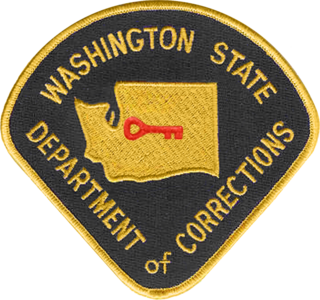
The Washington State Department of Corrections (WADOC) is a department of the government of the State of Washington. WADOC is responsible for administering adult corrections programs operated by the state. This includes state correctional institutions and programs for people supervised in the community. Its headquarters are in Tumwater, Washington.

The Kansas Department of Corrections (KDOC) is a cabinet-level agency of Kansas that operates the state's correctional facilities, both juvenile and adult, the state's parole system, and the state's Prisoner Review Board. It is headquartered in Topeka.

The Arkansas Department of Corrections (DOC), formerly the Arkansas Department of Correction, is the state law enforcement agency that oversees inmates and operates state prisons within the U.S. state of Arkansas. DOC consists of two divisions, the Arkansas Division of Corrections (ADC) and the Arkansas Division of Community Corrections (DCC), as well as the Arkansas Correctional School District. ADC is responsible for housing and rehabilitating people convicted of crimes by the courts of Arkansas. ADC maintains 20 prison facilities for inmates in 12 counties. DCC is responsible for adult parole and probation and offender reentry.

The Federal Bureau of Prisons (BOP) is responsible for all federal prisons and provides for the care, custody, and control of federal prisoners.

A probation or parole officer is an official appointed or sworn to investigate, report on, and supervise the conduct of convicted offenders on probation or those released from incarceration to community supervision such as parole. Most probation and parole officers are employed by the government of the jurisdiction in which they operate, although some are employed by private companies that provide contracted services to the government.

The California Department of Corrections and Rehabilitation (CDCR) is the penal law enforcement agency of the government of California responsible for the operation of the California state prison and parole systems. Its headquarters are in Sacramento.

The penal system of Japan is part of the criminal justice system of Japan. It is intended to resocialize, reform, rehabilitate and punish offenders. The penal system is operated by the Correction Bureau of the Ministry of Justice.
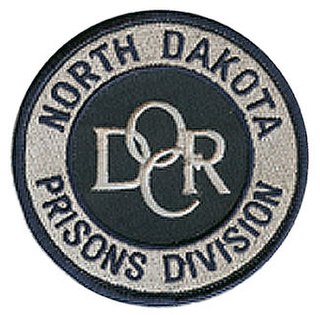
The North Dakota Department of Corrections and Rehabilitation (DOCR) provides prison services for the state of North Dakota. The Division of Field Services supervises parolees through 14 field offices. DOCR also has a Division of Juvenile Services providing supervision and case management of delinquent youth of the state. The agency has its headquarters in Bismarck.

The Tennessee Department of Correction (TDOC) is a Cabinet-level agency within the Tennessee state government responsible for the oversight of more than 20,000 convicted offenders in Tennessee's fourteen prisons, three of which are privately managed by CoreCivic. The department is headed by the Tennessee Commissioner of Correction, who is currently Frank Strada. TDOC facilities' medical and mental health services are provided by Corizon. Juvenile offenders not sentenced as adults are supervised by the independent Tennessee Department of Children's Services, while inmates granted parole or sentenced to probation are overseen by the Department of Correction (TDOC)/Department of Parole. The agency is fully accredited by the American Correctional Association. The department has its headquarters on the sixth floor of the Rachel Jackson Building in Nashville.

The New Hampshire Department of Corrections is the government agency in the U.S. state of New Hampshire charged with overseeing the state correctional facilities, supervising probation and parolees, and serving in an advisory capacity in the prevention of crime and delinquency. The largest correctional facility in the United States is the New Hampshire State Prison for Men in Concord, which is managed by the New Hampshire Department of Corrections. The agency has its headquarters in Concord.

The Utah Department of Corrections (UDC) is a government agency dedicated to the management and supervision of convicted felons in the U.S. state of Utah. It is currently led by the Executive Director Brian Nielson. It has its headquarters in the Utah Department of Corrections Administration Building in Draper.

The Texas Department of Criminal Justice (TDCJ) is a department of the government of the U.S. state of Texas. The TDCJ is responsible for statewide criminal justice for adult offenders, including managing offenders in state prisons, state jails, and private correctional facilities, funding and certain oversight of community supervision, and supervision of offenders released from prison on parole or mandatory supervision. The TDCJ operates the largest prison system in the United States.
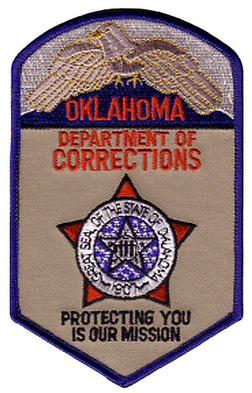
The Oklahoma Department of Corrections is an agency of the state of Oklahoma. DOC is responsible for the administration of the state prison system. It has its headquarters in Oklahoma City, across the street from the headquarters of the Oklahoma Department of Public Safety. The Board of Corrections are appointees: five members are appointed by the Governor; two members are appointed by the President Pro Tempore of the Senate; and two members are appointed by the Speaker of the house of Representatives. The board is responsible for setting the policies of the Department, approving the annual budget request, and working with the Director of Corrections on material matters of the agency. T. Hastings Siegfried is the current chairman of the board. The director, who serves at the pleasure of the governor, is the chief executive of the department. The current director of Corrections is Steven Harpe, who was appointed in October 2022.

The Department of Public Safety and Corrections (DPS&C) is a state law enforcement agency responsible for the incarceration of inmates and management of facilities at state prisons within the state of Louisiana. The agency is headquartered in Baton Rouge. The agency comprises two major areas: Public Safety Services and Corrections Services. The secretary, who is appointed by the governor of Louisiana, serves as the department's chief executive officer. The Corrections Services deputy secretary, undersecretary, and assistant secretaries for the Office of Adult Services and the Office of Youth Development report directly to the secretary. Headquarters administration consists of centralized divisions that support the management and operations of the adult and juvenile institutions, adult and juvenile probation and parole district offices, and all other services provided by the department.

The Pennsylvania Department of Corrections (PADOC) is the Pennsylvania state agency that is responsible for the confinement, care, and rehabilitation of approximately 37,000 inmates at state correctional facilities funded by the Commonwealth of Pennsylvania. The agency is headquartered in Hampden Township, Cumberland County in Greater Harrisburg, near Mechanicsburg.
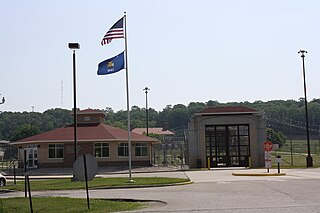
Taycheedah Correctional Institution is a prison in Fond du Lac, Wisconsin near the Town of Taycheedah. Established in 1921, it was known as Wisconsin Home for Women until 1975. The facility houses maximum-security and medium-security adult females, with an average population of 936 as of May 2019.
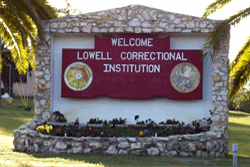
Lowell Correctional Institution is a women's prison in unincorporated Marion County, Florida, north of Ocala, in the unincorporated area of Lowell. A part of the Florida Department of Corrections, it serves as the primary prison for women in the state. Almost 3,000 women are incarcerated in the complex, which includes the Lowell Annex. As of 2015 2,696 women are in the main Lowell CI, making it the largest prison for women in the United States; its prison population became larger than that of the Central California Women's Facility that year.

Dodge Correctional Institution(DCI) is an adult male maximum-security correctional facility operated by the Wisconsin Department of Corrections Division of Adult Institutions in Waupun, Wisconsin, US. The facility was converted from the Central State Hospital for the Criminally Insane to an adult correctional facility in 1977 at a cost of $2.47 million of general obligation bonds, as authorized by Chapter 29 of the Laws of 1977. The first two inmates were transferred from the nearby Waupun Correctional Institution to DCI on May 15, 1978. On October 29, 1993, ground was broken for a $45 million expansion which more than doubled the size of the facility. On June 17, 1996, the first female prisoner was admitted to DCI making it the only reception center for both male and female adult felons committed to the Wisconsin Department of Corrections. DCI served as the reception center for both male and female inmates until December 1, 2004, when the female reception center moved to the Taycheedah Correctional Institution. DCI also serves as the central medical center for the division, providing both in-patient and out-patient care for male and female inmates.





















